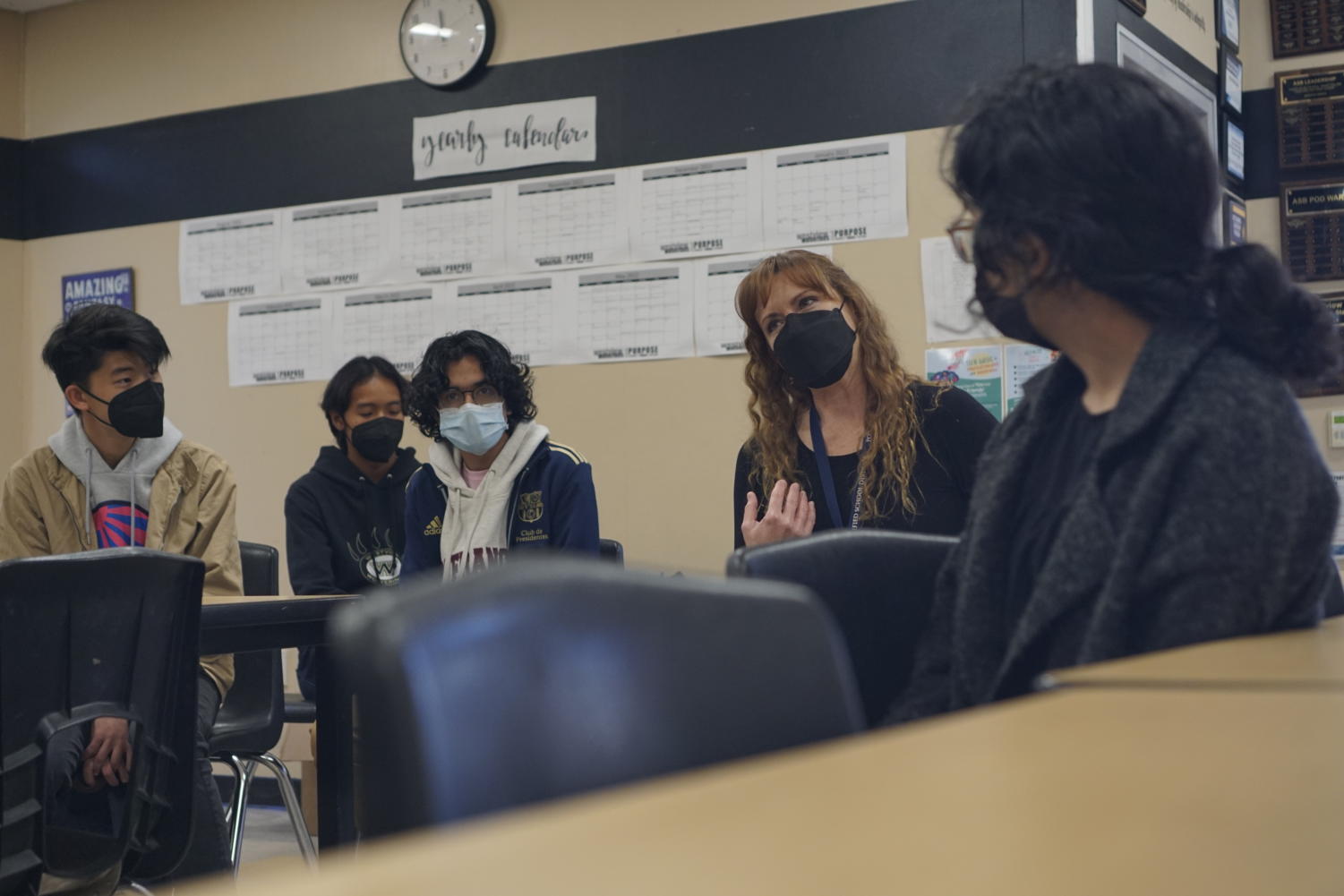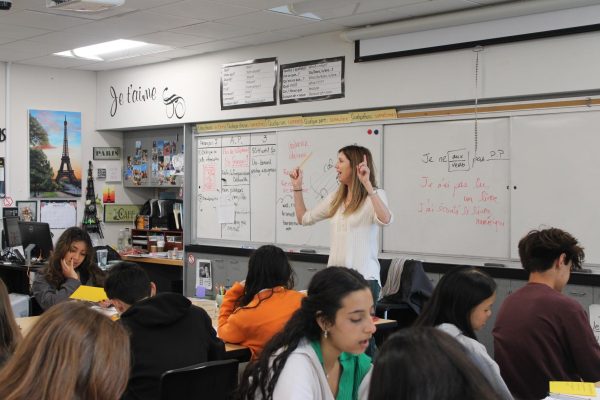O’Connor-Ratcliff, Xu hold Board of Education office hours, discuss district communication, mental health
November 19, 2021

School Board Trustee Michelle O’Connor-Ratcliff and Student Board Member Winnie Xu (12) hosted Office Hours with a Trustee—an open-ended forum held to answer questions about the PUSD Board of Education’s decision making—in the ASB Room Nov. 4. The forum allowed for discussion of public opinion, views on mental health, and transparency with the student body across PUSD.
According to Xu, the event was proposed by O’Connor-Ratcliff after Xu expressed a desire to engage more students in local advocacy.
“School boards are front and center for a lot of political news, so we wanted students to be able to fully understand the weight of school boards and their governance and jurisdiction on specific issues that impact students,” Xu said.
The forum was open to anyone interested. It advertised as an open-ended discussion to inform students about anything related to the board, ultimately allowing the students attending to decide the direction of the conversation.
Elizabeth Carey (12) said she attended the forum as she was curious about the processes for creating school policy and to better understand the people running the board.
“I might have been satisfied with an email [to answer my questions], but the opportunity of directly talking to a member of the board was too good an opportunity to pass up,” she said.
Carey questioned O’Connor-Ratcliff about how the Board of Education received public opinion. According to O’Connor-Ratcliff, call-ins during board meetings or simply sending emails to the board members to voice any grievances work well. Furthermore, Xu emphasized the weight public comments can hold during board meetings, as the commenter’s message reaches the entire Board of Education.
“Not only do the [main] board members—or like the six of us—hear it, but we have about 15 district leaders, the associate superintendents, the directors of human resources, the directors of technology and everyone [online] who’s listening in because when we get a call-in, it’s projected into the entire auditorium,” Xu said. “Everyone hears if you call in and you give a comment, suggestion or just grievance.”
Developing her point further, Xu referred to former Poway student Emily Bylsma’s successful attempt at rallying student opinion on mental health that spurred the board to implement a policy allowing students to take two mental health excused absences per year.
When the mental health excused absences were brought up in the forum, many attending students said they were unaware of the existence of these days.
Carey, who happened to hear about the mental health days while viewing board meetings via Zoom with her mother, said she was shocked to hear how in the dark students were about the resource.
“I find it exceedingly alarming that students would be uninformed about any subject that has a direct impact on their lives,” Carey said. “Regarding mental health days, specifically, I find it both interesting and frustrating that students do not know the specifics of what is at their disposal. Students are learning material on a daily basis that may or may not literally help them in the future, but they lack the basic information that could help them in the present time. That’s a bit of a conundrum.”
The lack of knowledge of the mental health days among the attending students led the conversation into the topic of disconnect between the governing bodies of the district and the students themselves.
Xu said that some information may get lost on students as parents are the ones that receive district emails rather than the students themselves.
“Oftentimes, most of the important news is just emailed to parents, and some parents don’t share that with their students,” she said. “[To fix this issue, we] need to be catering more towards the realms of communication that students go to, whether it’s like the Canvas page, Instagram, the ASB website, or homeroom and having individual teachers showing a slideshow with information.”
On top of the struggles in getting information to students, inclusively assessing the values and opinions of the PUSD student body can be a difficult feat also. According to Xu, surveys are used as a means to gather mass opinion and, inevitably, some people don’t respond.
“A lot of the time, people who fill out those surveys are the ones who are actually involved in school politics or involved within the district,” Xu said. “It’s really hard to get [representative information from] those surveys because a lot of the time we just go based on who’s actually vocal, but I think what I realized is we’ve got to make [these surveys] mandatory. Because even though it’s like a lot of work, and it’s a hassle for students to have to turn these things in, it’s the only way to truly get an accurate representation of what people need.”
Similarly, Luke Zheng (12) said he feels that the board should be the ones actively pursuing clearer communications with students in order to assess their opinions properly. Zheng, who has spent his entire schooling career in PUSD, said it was only relatively recently—after being instructed to do so for an assignment—that he realized students could directly contact the board members.
“Creating more transparency and communication like this would create more student feedback in general, because a lot of times I feel like we as students just can’t be asked to take the first step,” He said. “I think more [outreach] is definitely needed if the board aims to see the actual impacts of the things they’re putting out. Students would feel like they have a say in the things that are applied to them.”
Thus, Zheng said he was thrilled when he heard about the forum and felt as if the disconnect between the board and students were being bridged.
“It was actually pretty exciting, because for the first time I could kind of see what was happening in the background,” Zheng said. “Talking to [O’Connor-Ratcliff] gave me more insight into what was actually happening in our district, and to see that effort was being made to improve our school experience was refreshing.”





![Alexander McAllister (10) [third from the left] practices with his rowing team at Mission Bay, Feb. 8. McAllister has learned to work in unison with others on the water.](https://wvnexus.org/wp-content/uploads/2024/02/alex-rowing-1-600x418.jpg)

